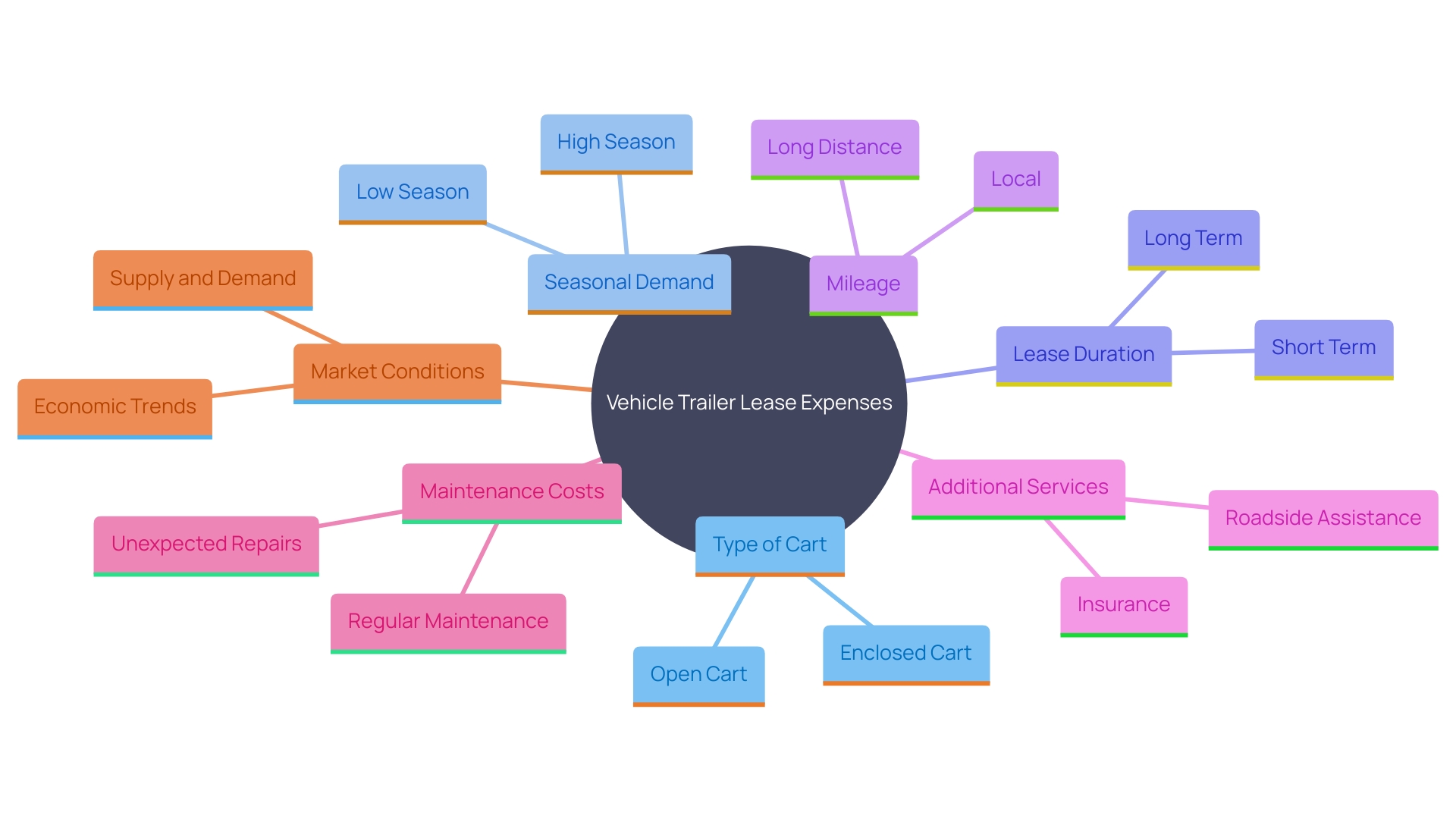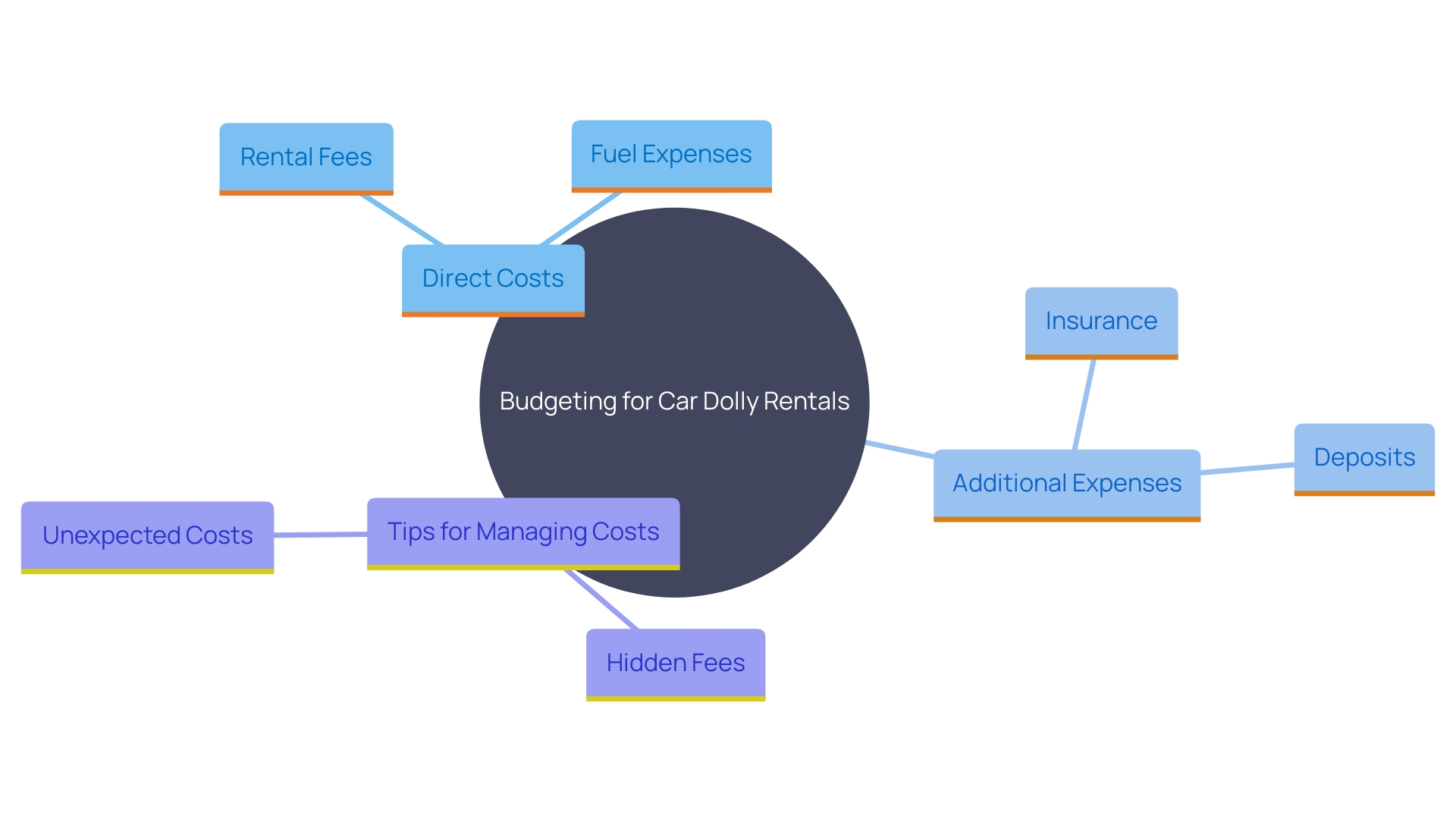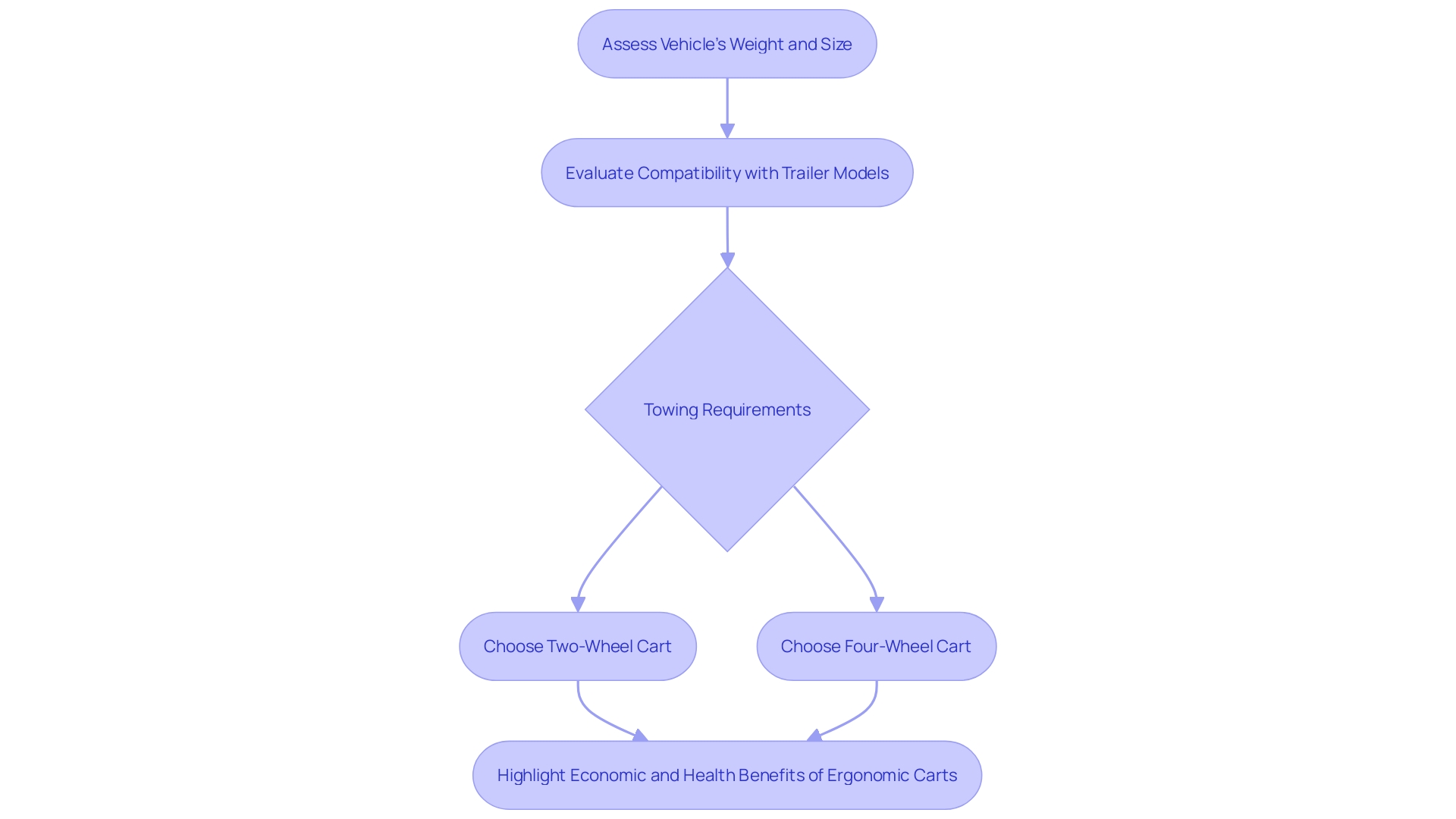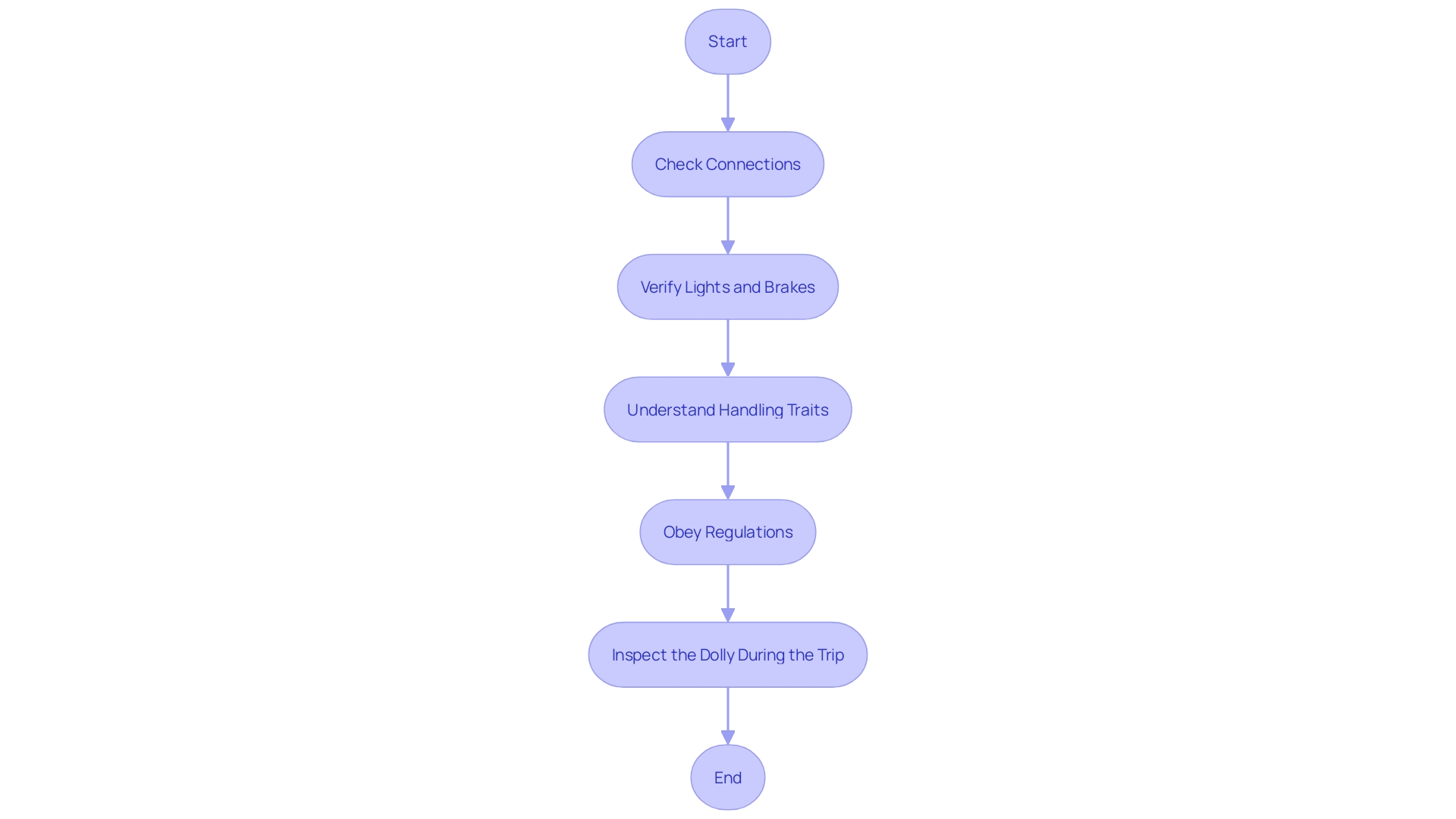Introduction
Renting a car dolly can be a cost-effective solution for towing a vehicle, but understanding the factors that influence rental costs is crucial to making an informed decision. Various elements such as the type of dolly, rental duration, and location significantly impact the overall price. Seasonal demand and specific features or accessories included with the dolly also play a role in determining costs.
Knowing how to effectively budget for car dolly rentals, considering potential additional expenses like insurance and hidden fees, can help avoid unexpected surprises. Furthermore, selecting the appropriate car dolly based on vehicle compatibility and safety considerations ensures a smooth and secure towing experience. This comprehensive guide aims to equip renters with the knowledge needed to navigate the car dolly rental process efficiently and safely.
Factors Affecting Car Dolly Rental Cost
When thinking about vehicle trailer leases, numerous elements can greatly affect the total expense. The kind of cart leased, such as a 4-wheel or trailer cart, and the length of the leasing period are primary determinants. Rental location also plays a crucial role; prices can vary widely depending on geographic area and local demand. The brand and model of the dolly, along with any included accessories or features, may further affect the cost. Seasonal demand impacts prices considerably, with rates typically higher during peak travel times. For example, a study found that car hire rates in some popular destinations can be up to three-quarters cheaper in winter compared to summer, illustrating the impact of seasonal demand. Comparing quotes from various leasing companies is essential to ensure the best deal. By understanding these factors, renters can make more informed choices and potentially save on expenses.

Budgeting Tips for Car Dolly Rentals
Effective budgeting for car dolly rentals involves more than just the rental fee. Begin by calculating your overall travel distance, as this can influence fuel expenses if you're towing a vehicle. Consider any extra expenses, such as insurance coverage, damage waivers, and potential deposits. It's also wise to consider any hidden fees that may arise, such as late return penalties or cleaning fees. Setting aside a little extra for unexpected expenses can help prevent budget overruns. Nationally, the average vehicle hire costs $91 per day, according to J.D. Power’s 2023 North America Rental Car Satisfaction Study. However, rental car prices can vary widely depending on the type of vehicle, the company, and the pickup and drop off locations customers choose, with rates running anywhere from as little as $30 a day for an economy car to over $200 a day for a luxury vehicle. Concealed charges, like additional fuel expenses and cleaning fees, can easily be missed in the fine print. These unexpected costs can sour any trip when they are tacked on to the final bill. To avoid surprises, carefully review the lease agreement and inquire about any potential fees. Lastly, consider joining loyalty programs at major car hire companies like Avis or Hertz, as they often offer benefits like express pickups, which can save time and reduce hassle.

Choosing the Right Car Dolly for Your Needs
Selecting the appropriate vehicle platform is crucial for a smooth rental experience. Start by assessing the weight and size of the vehicle you plan to tow, as compatibility differs among various trailer models. Choose platforms with adjustable characteristics to fit different wheelbases and towing capacities. It's also important to choose between a two-wheel or four-wheel cart based on your specific towing requirements and preferences. Additionally, consider the economic advantages of utilizing ergonomic carts, which can lessen strain and fatigue, leading to better overall employee health and enhanced job satisfaction.

Safety Considerations and Precautions
Safety should always be a priority when renting and using a car trailer. Before departing, ensure that the cart is securely connected to your towing vehicle, and verify that all lights and brakes are functioning correctly. Get to know the handling traits of the equipment, particularly if you are inexperienced with towing. This is crucial, as studies show that cars equipped with stability systems are significantly less likely to be involved in accidents. Additionally, obey local towing regulations and speed limits to minimize the risk of accidents. Regularly inspect the dolly during your trip for any signs of wear or damage. This proactive approach can prevent mishaps and ensure a safe journey.

Conclusion
Understanding the intricacies of car dolly rentals is essential for making informed decisions and ensuring a smooth towing experience. Key factors influencing rental costs include the type of dolly, rental duration, and location, all of which can lead to significant variations in pricing. Seasonal demand further complicates the landscape, making it vital for renters to compare quotes and choose the most cost-effective options available.
Effective budgeting goes beyond the rental fee itself. Anticipating additional costs such as fuel, insurance, and potential hidden fees can help prevent financial surprises. Careful review of rental agreements and consideration of loyalty programs can enhance the overall rental experience and provide additional savings.
Selecting the right car dolly is critical for safety and efficiency. Evaluating vehicle compatibility, choosing the appropriate dolly type, and ensuring ergonomic features can lead to a more comfortable towing experience. Prioritizing safety through proper equipment checks and adherence to regulations is essential to minimize risks on the road.
In summary, a well-informed approach to renting a car dolly can lead to significant savings and a secure towing experience. By considering all relevant factors, budgeting effectively, and prioritizing safety, renters can navigate the rental process with confidence and peace of mind.




